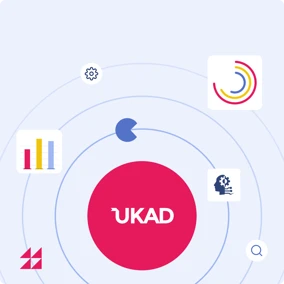Getting started with AI begins by identifying how it can add value to your business. Set clear goals, no matter whether you want to streamline operations, reduce costs, improve customer experience, or gain valuable knowledge from data.
Next, assess your current infrastructure and decide whether ready-made tools or custom AI development better suit your needs. This depends on your industry, scale, and technical resources.
Our trusted AI consultants help businesses in eCommerce, fintech, healthcare, and other sectors adopt AI with confidence. We guide you through every step, from defining the right strategy to building intelligent systems like predictive analytics, AI chatbots, or workflow automation.


















